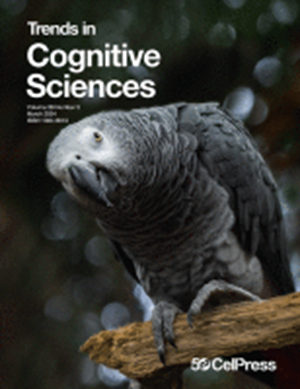人工亲密:人工智能浪漫的伦理问题。
IF 17.2
1区 心理学
Q1 BEHAVIORAL SCIENCES
Trends in Cognitive Sciences
Pub Date : 2025-06-01
Epub Date: 2025-04-11
DOI:10.1016/j.tics.2025.02.007
引用次数: 0
摘要
随着人类与人工智能(AI)建立恋爱关系,人工智能(AI)的伦理边界正在扩大。要解决人工智能作为侵入性追求者、恶意顾问和剥削工具的伦理问题,需要对人类为什么以及如何爱上机器进行新的心理学研究。本文章由计算机程序翻译,如有差异,请以英文原文为准。
Artificial intimacy: ethical issues of AI romance.
The ethical frontier of artificial intelligence (AI) is expanding as humans form romantic relationships with AIs. Addressing ethical issues of AIs as invasive suitors, malicious advisers, and tools of exploitation requires new psychological research on why and how humans love machines.
求助全文
通过发布文献求助,成功后即可免费获取论文全文。
去求助
来源期刊

Trends in Cognitive Sciences
医学-行为科学
CiteScore
27.90
自引率
1.50%
发文量
156
审稿时长
6-12 weeks
期刊介绍:
Essential reading for those working directly in the cognitive sciences or in related specialist areas, Trends in Cognitive Sciences provides an instant overview of current thinking for scientists, students and teachers who want to keep up with the latest developments in the cognitive sciences. The journal brings together research in psychology, artificial intelligence, linguistics, philosophy, computer science and neuroscience. Trends in Cognitive Sciences provides a platform for the interaction of these disciplines and the evolution of cognitive science as an independent field of study.
 求助内容:
求助内容: 应助结果提醒方式:
应助结果提醒方式:


